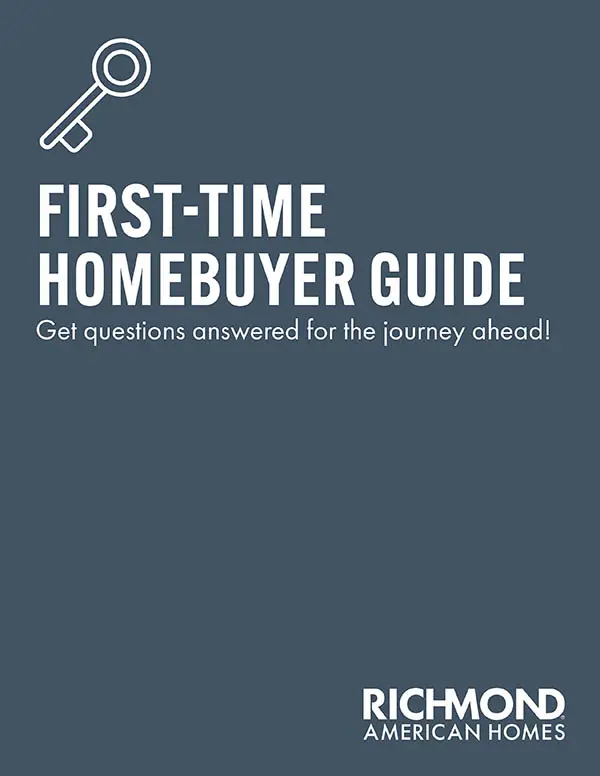Whether it’s a plumber or a new printer, many of us do extensive research to find just the right pick to get a job done. When it comes to finding a real estate agent, examining ratings and testimonials is even more crucial: after all, your happiness hinges on their ability to understand and pursue your goals with speed and professionalism. Buying or selling a home is not only a substantial transaction, it can also have a long-term impact on your quality of life—so don’t miss our handy tips for choosing the agent that’s best for you!
Why should I consider using an agent?
If finding a real estate agent seems like more trouble than it’s worth, think again. A good agent can provide invaluable expertise on everything from area pricing and target buyers to showings, staging, paperwork and negotiations, helping you navigate the housing market smoothly and successfully. If they do their job well, a real estate agent helps ensure that a potentially stress-packed process runs seamlessly.
What’s the difference between an agent and a Realtor®?
When it comes to choosing between an agent and a Realtor®, here’s what you should know.* A real estate agent is a licensed professional who had to pass an exam in order to buy and sell homes on behalf of clients. A Realtor® is a member of the National Association of REALTORS®, which is a specific group that has their own set of standards and a “strict code of ethics,” viewable here. Learn more about Realtors® on this page.
Ready to find a real estate agent? Start here.
Narrow down your options
Type “real estate agent near me” into a browser and you’ll immediately be swamped with hundreds of smiling headshots and thousands of local options. It can feel overwhelming trying to sort through so many choices, but there are several ways you can make the process easier.
First, ask for referrals from friends and family. If the people you love enjoyed working with a given agent, there’s a good chance you’ll have a similar experience. Ideally, you should seek out referrals from homebuyers that had similarly priced homes and goals; an agent that worked well with a first-time buyer looking for a starter home might not be as familiar with the needs of a repeat buyer looking to downsize.
You can also take advantage of free online resources to create a shortlist of candidates. Zillow’s “Find an agent” site shows you top-rated local agents with corresponding testimonials, recent listings and sales in your area, saving you from sifting through countless choices all over the web.
HomeLight is another convenient option for finding a real estate agent. According to their site, they “analyze over 27 million transactions and thousands of reviews to determine which agent is best for you based on your needs,” whittling down myriad prospects to two or three cream-of-the crop candidates. HomeLight’s comprehensive agent evaluations include specialty and historical transactions, average length of sale relative to area numbers, number of homes sold in the past six months and in the past year, and how much more or less than the list price the agent usually sells a home for. There’s so much information online that you could spend eternity sorting through it all, but don’t forget to focus on client testimonials. One or two negative reviews could be a fluke, but could be a red flag to steer clear.
Interview at least three real estate agents
You’ve put together a list of top potential agents: now it’s time to talk! A face-to-face interview is a fantastic way to get a sense of a candidate’s personality, which can be one of the most important factors in choosing the right agent. If you’re all about spreadsheets and constant emailing, but your interviewee mentions that their process tends toward spontaneity, it’s probably not a good match. An interview is also helpful in determining how invested a candidate is in winning your business. Did they arrive with a polished, professional proposal? If they show up without having done any research at all, their level of effort might be an indication of how hard (or not) they’ll work for you in the future.
Check references
Buying or selling a home is a complex undertaking, and you need an agent with a proven track record of success. Ask potential agents for details on homes they’ve listed and sold in the past year, along with contact information for some recent clients.
To gauge if an agent is a good fit for you, consider asking their references the following questions:
- Overall, how was your experience working with this agent?
- What was your favorite and least-favorite part of working with this agent?
- How quickly did the agent to respond to phone calls and email?
- Did the agent listen to what you wanted?
- If you sold your home, what was the list price and final sale price?
- Do you feel this agent got you the best price possible?
Once you’ve found an agent you can’t wait to work with, make sure you verify that they have a valid license. There’s an easy way to ensure that they’re legitimate: The Association of Real Estate License Law Officials (ARELLO) has a searchable database that allows consumers to verify any agent’s license or registration.
Traits to Look for in an Agent
Communication skills
It’s possible you’ll be talking to your agent on a daily basis, and you need to be able to rely on them for clear, timely communication. Find a real estate agent who pays attention to your wants and needs and customizes your home search to suit your wish list. When you tell your agent what you’re looking for in a home, does he or she take notes? If not, this could be your first warning bell. If you say you want a brand-new home with four bedrooms and you’re constantly touring older three-bedroom homes with outdated kitchens, it could be time to move on.
Your agent’s ability to effectively listen and communicate affects far more than your personal experience—it also reveals how they’ll connect with prospective buyers and sellers. Are their emails, marketing materials or website rife with spelling errors and typos? Is their content useful and easy to understand? If an agent can’t clearly articulate the advantages of their own services, will they be able to successfully and persuasively convey the selling points of a listing? Maybe not.
Possibly the most important aspect of your agent’s communication skills is their responsiveness. In competitive markets, waiting 24 hours for an agent to return your call can easily mean losing an in-demand listing or a qualified buyer. An agent you can depend on to take quick, decisive action is one that could make the difference between snagging your dream home or being left disappointed.
Knowledge of the area
Yes, it helps to feel like you’ve found an agent you can trust, but enlisting cousin Steve might not be the way to go if he usually works in another part of town or sells an entirely different kind of property. Knowing the area is more than plugging coordinates into a GPS. Real estate agents that specialize in one city or neighborhood will be equipped with important information that can be vital in your decision making. Anyone can find a listing online and bring you from point A to point B; what you need is someone who knows a community’s school districts, understands the lifestyle and can identify if a home is fairly priced before you ever walk in the door.
Time and attentiveness
An experienced, “rock star” agent may sound appealing, but make sure he or she has enough time to devote to your home search. Going with a celebrated real estate agent with an impressive client list might not be the right fit for you, especially if you’re a first-time homebuyer and you find yourself competing for time with million-dollar clients. Don’t be afraid to ask how many other clients the agent has and how quickly he or she can typically respond if you see your potential “dream home” hit the market. Who knows? An up-and-coming agent with drive and a smaller client set might be a better option. Be sure to find out whether your agent works in real estate part- or full-time, as this is another indicator of how much effort they can dedicate to your needs.
Marketing savvy
It’s not unreasonable to expect the real estate agent that you’ve chosen to sell your home to give you the rundown on their marketing and sales strategy. Is your agent active on social media? How do they plan to maximize your listing’s exposure? Has he or she done their homework to price the home competitively? Be sure to ask the tough questions and make sure you’re comfortable with the answers.
More interview questions to use:
- How many sales did you close this year?
- How many homes have you sold in my area? Were they in a similar price range to my home?
- How many of those homes sold at or near the list price?
- What is your marketing strategy for a home like mine?
- Do you use a professional photographer or home stager?
- How long do you think it will take to sell my home?
- Who is my target buyer?
- Do you work in real estate full-time?
- How much of your business comes from referrals?
- What kind of contract do you offer? What happens if I’m unhappy with our working relationship?
If you’re buying a home, consider these questions:
- How familiar are you with the areas or neighborhoods I’m interested in?
- How often will you send me new listings that match what I’m looking for?
- Can you recommend other professionals I’ll need, such as a home inspector?
- How long does the typical buying process take with you?
- Do you attend each home inspection? (Agents who attend home inspections can ask the home inspector detailed questions directly; this information can help them negotiate a lower price.)
- What is your sale-to-list ratio for your last 10 transactions? (This number can be a good clue as to how well an agent negotiates.)
Finding a real estate agent that’s effective, empathetic and excited to discover your dream home is crucial when you’re ready to move. Even before you find your agent though, it’s helpful to do a bit of browsing and figure out what you’re looking for in a new home. If your “must-haves” include smart floor plans, open layouts and lots of designer details, this is the perfect place to start your search.
Want some more resources about the homebuying process? Check out these great posts!
- Hire a Real Estate Agent or Sell It Yourself?
- How to Sell Your Home: A Checklist
- 4 Things a Real Estate Agent Can Do for You (Other Than Show Homes!)
Take the guesswork out of homebuying!
Our free First-time Homebuyer Guide is filled with tips to help you navigate your homebuying journey.
*REALTOR® and REALTORS® are service marks owned by the National Association of Realtors®.






